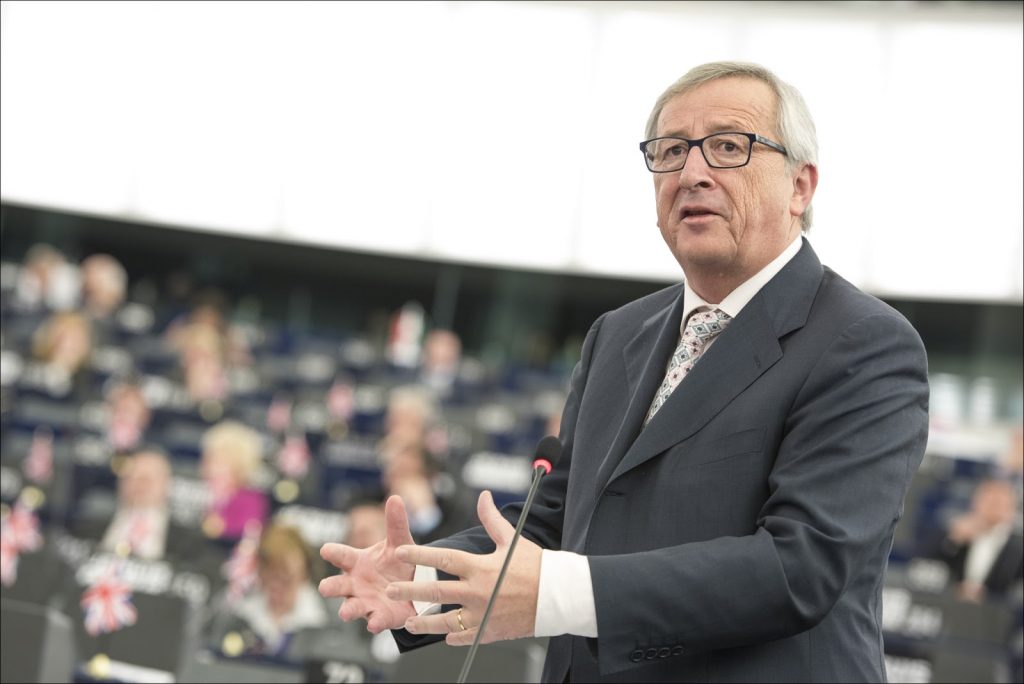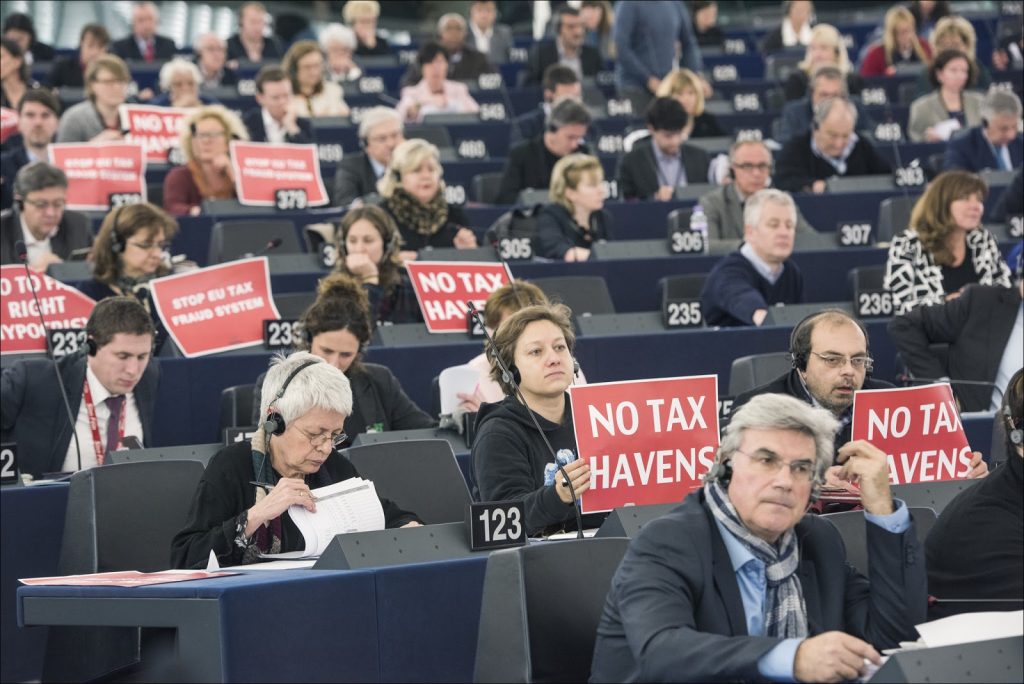Tax fraud and tax evasion within the European Union (EU) form a big problem that concerns all EU citizens. For instance, in 2017 the EU lost 137 billion euros in value-added-tax revenues, but taking also other types of tax frauds into account, the estimates of lost revenues due to tax evasion and avoidance go all the way up to 1 trillion euros.
Tax avoidance and evasion can be carried out in different ways, such as aggressive tax planning by taking advantage of loopholes in legislation or by transferring money to tax havens. Tax havens are often associated with remote and foreign states but, despite the close economic integration of the EU, can also be found within the Union.
Today, tax avoidance is a recognized problem in the EU, so how is it still possible?
Free movement of capital facilitating tax avoidance
The free movement of capital is one of the EU’s four freedoms and the basis of the European Single Market meaning that all restrictions and limits on the movement of capital – for example, on buying and selling shares and assets, as well as foreign investments between member states being prohibited. This freedom, related to banking secrecy, has created an opening for tax frauds – or at least made the monitoring of tax compliance trickier.
The EU has been working on harmonizing taxation and legislation in the member states, but still there are big differences regarding state provided tax reliefs and tax transparency. This has offered more room for systematic tax planning, tax avoidance and, eventually, tax evasion. As the taxation differs from one member state to another and the tax rates can be notably lower, tax payers, investors and companies might consider directing their income and profits through a different member state that is not their country of residence. Due to this, a total of seven EU member states, Belgium, Cyprus, Hungary, Ireland, Luxembourg, Malta and the Netherlands, are considered tax havens.
In recent years, this action has been closely observed through the Luxembourg Leaks – a major investigation revealing that over 300 foreign companies avoided taxes by channelling the taxation through Luxembourg where companies pay significantly lower corporate taxes than in other European states as the state’s legislation makes offers of substantial tax relief and deduction deals in privacy.
Several multinational companies, such as Disney, Pepsi and IKEA, profited financially by centralizing their income stream on European market through Luxembourg where they had to pay less than 1% taxes of their profits whereas taxation in other EU countries could have cost them billions of euros more, as the average corporate income tax rate in the EU countries is currently around 21,3%. Similar taxation deals are found for example in Ireland with Apple and in the Netherlands with Nike, as revealed by an investigation of the so-called Paradise Papers.

Zero-sum game?
Free movement of capital and tax planning within legal framework can create healthy competition and maximize profits for all actors, the EU, the member states, the companies, as well as individuals. However, at worst, harmful tax competition can unbalance the equality between the member states.
According to Spanish Member of the Parliament, Miguel Urban, the problem with tax evasion is the lack of fiscal unity in Europe which leads to fiscal competition and dumping aimed at attracting companies and capital. One can even argue that free movement of capital facilitates tax evasion. Miguel Urban states: “We are returning to a feudal system, where the feudal lords don’t pay any tax. This aristocratic class and modern feudalism is called Bono, Messi, Christiano Ronaldo as well as Nike, Apple and Amazon. It’s a class that positions itself not only above the middle class but also above small and medium-sized businesses. It’s a new nobility that believes to be above the law.’’
States’ right to choose their form of taxation is an argument often referred to by the tax-avoiding nations. For example, many Luxembourgers have publicly expressed this opinion, as a spokesman for the Luxembourg Finance Ministry says: “Each country should be free to fix taxes according to its national priorities”. Many lobby organisations promote this view as well, as Nicolas Mackel from Luxembourg’s financial lobby puts it: “Competition is healthy. And it is legitimate. To align the rules would certainly increase taxation. And that is not necessarily the most appropriate thing”.
These opposing views have created some contradictory outcomes mainly associated with the President of the European Commission, Jean-Claude Juncker. Previously Juncker has been the Finance Minister of Luxembourg, meaning that he has been one of the main actors preparing the tax relief deals with multinational companies, but as the President of the Commission he has been forced to fight against these deals and tax evasion.
However, with regards to the internal market system of the EU, it is evident that when one country offers tailored tax deals to multinational corporations, it steals the revenue from all the other countries. When multinationals dodge taxes, the gap has to be somehow compensated for and this often means increasing taxes on small and medium-sized enterprises, lower- and middle-income households and cutting back on public services.
The EU loses around 20% of its corporate tax revenue to tax havens. The woeful part about tax evasion is its clear connection to inequality between citizens all over Europe. Had the correct amount of corporate taxes been paid accordingly, there would be no need for any budgetary cuts.

Time to act
Recently the EU has taken measures to combat tax evasion as one of the focus points of its agenda.
One of the most effective and recent actions of the EU in the fight against tax evasion is the Anti Tax Avoidance Package based on the recommendations of The Organisation for Economic Cooperation and Development (OECD). The package was introduced in 2016 and aims at achieving fairer and more coherent corporate taxation by increasing transparency and helping the member states to act united against tax frauds. As a part of this package the Anti Tax Avoidance Directive, creating a minimum level of protection against tax avoidance, was applied on 1 January 2019. The directive includes rulings against profit shifting to low-tax countries, to prevent double non-taxation and to discourage artificial debt arrangements.
Even though these measurements are now applied, the fight against tax evasion is still in its early stages. Like with many other major issues within the EU there seems to be more talking than taking action. One reason for this is the fact that taxation is still very highly associated with member states sovereignty. As a consequence, policies and rulings related to taxes are handled in the Council of the European Union with unanimity which means that one single member state can obstruct the proposed changes and legislation if it collides with their own national interest.
Issues with a cross-border dimension, like aggressive tax-planning and evasion, are hard to tackle with only domestic policies. The EU’s internal market structure between 28 member states can both be the accelerator of the problem, as well as the key to a possible resolution.
Written by Isa Tiilikainen & Jasmin Virta
Photo Credits
Bad Weather, Frédéric Schneider, CC BY-NC-ND 2.0
Commission President Jean-Claude Juncker debated the last EU summit, Pietro Naj-Oleari (European Parliament), CC BY-NC-ND 2.0
Members making statement during vote on motion of censure against the Commission, Pietro Naj-Oleari (European Parliament), CC BY-NC-ND 2.0









